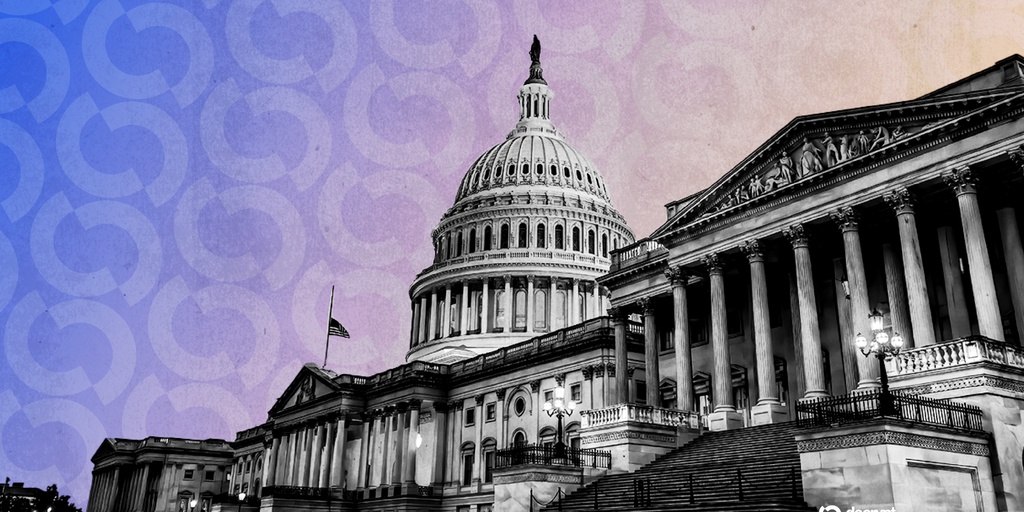It was supposed to be a slam dunk.
The American crypto industry, flush with more political capital than it has ever had (and perhaps will ever have), was to get its long-awaited “regulatory clarity” on stablecoins last week.
And yet the Senate failed to pass a key procedural vote on the marquee stablecoin legislation. As the bill, dubbed the GENIUS Act, languishes in legislative purgatory, should it be considered functionally dead—or might there be hope yet for its passage?
It depends who you ask.
Technically speaking, according to the Senate’s rules, the window to file a motion to reconsider the bill—which would establish a legal framework for offering stablecoins in the United States—has already passed. Such a motion would have had to be filed by Monday evening, and no senators did so in time. A source familiar with the Senate’s rules of procedure confirmed this state of affairs to Decrypt.
Stablecoins are a key component of the crypto economy. They are essentially digital dollar-equivalents that allow their users to enter and exit digital asset trades, and send payments or remittances overseas, without the need to access dollars directly.
It’s expected that once these assets are anointed by the U.S. Congress, rules of the road signed into law by President Donald Trump, banking giants and Wall Street titans will join the fray and enter the stablecoin market—bringing billions if not trillions of dollars into crypto. That’s why the lobbying arm of the crypto industry has been pushing so hard for this legislation.
But the GENIUS Act has not been taken up for a cloture vote this week because, functionally, political calculus has not changed on the topic since Thursday. A small cadre of pro-crypto Democrats still have yet to reach a deal with Republican leadership over the bill’s language. Republicans are confident, however, they will be able to take advantage of “other procedural opportunities” to get the GENIUS Act back to the Senate floor if such a deal is made, sources told Decrypt.
After a largely uneventful weekend, key Democratic and Republican stakeholders are resuming talks this week over the contents of the bill, sources familiar with the plans told Decrypt. Both sides are remaining exceptionally tight-lipped, however, about what exact language is holding up progress. Five Senate Democrats who voted against the bill last week previously voted to advance it from the Senate Banking Committee. Two of the Democrats who opposed the bill on Thursday, Kirsten Gillibrand (D-NY) and Angela Alsobrooks (D-MD), are consponsors of the legislation.
In a statement issued last weekend, pro-crypto Democrats blamed their withdrawal of support for GENIUS on portions of a new draft of the bill, which they said contained insufficient anti-money laundering and national security protections. But optics appear to also be playing a significant role in their change of tune. In the last two weeks, President Donald Trump and his family have made multiple flashy crypto and stablecoin-related announcements that have animated Democrats over perceived conflicts of interest in the White House.
That line of attack has only been exacerbated since the weekend, with Trump announcing Monday that he intends to personally accept a $400 million Boeing jet as a gift from the Qatari government.
Multiple crypto policy leaders told Decrypt Tuesday they are growing increasingly worried that the political stakes involved pose a very real threat not just to any chance of salvaging the GENIUS Act, but also the rest of the industry’s legislative agenda. A parallel stablecoin bill is currently making its way through the House, and foundational market structure legislation is pending in both chambers of Congress.
The policy leaders all agreed that this week is do or die for crypto’s political momentum in Washington. Should the GENIUS Act fail to make significant progress by Friday—as in, pass the cloture vote it failed last week—the situation could become terminal, they warned.
“Grim if something doesn’t give soon,” one D.C. insider put it.
Daily Debrief Newsletter
Start every day with the top news stories right now, plus original features, a podcast, videos and more.







